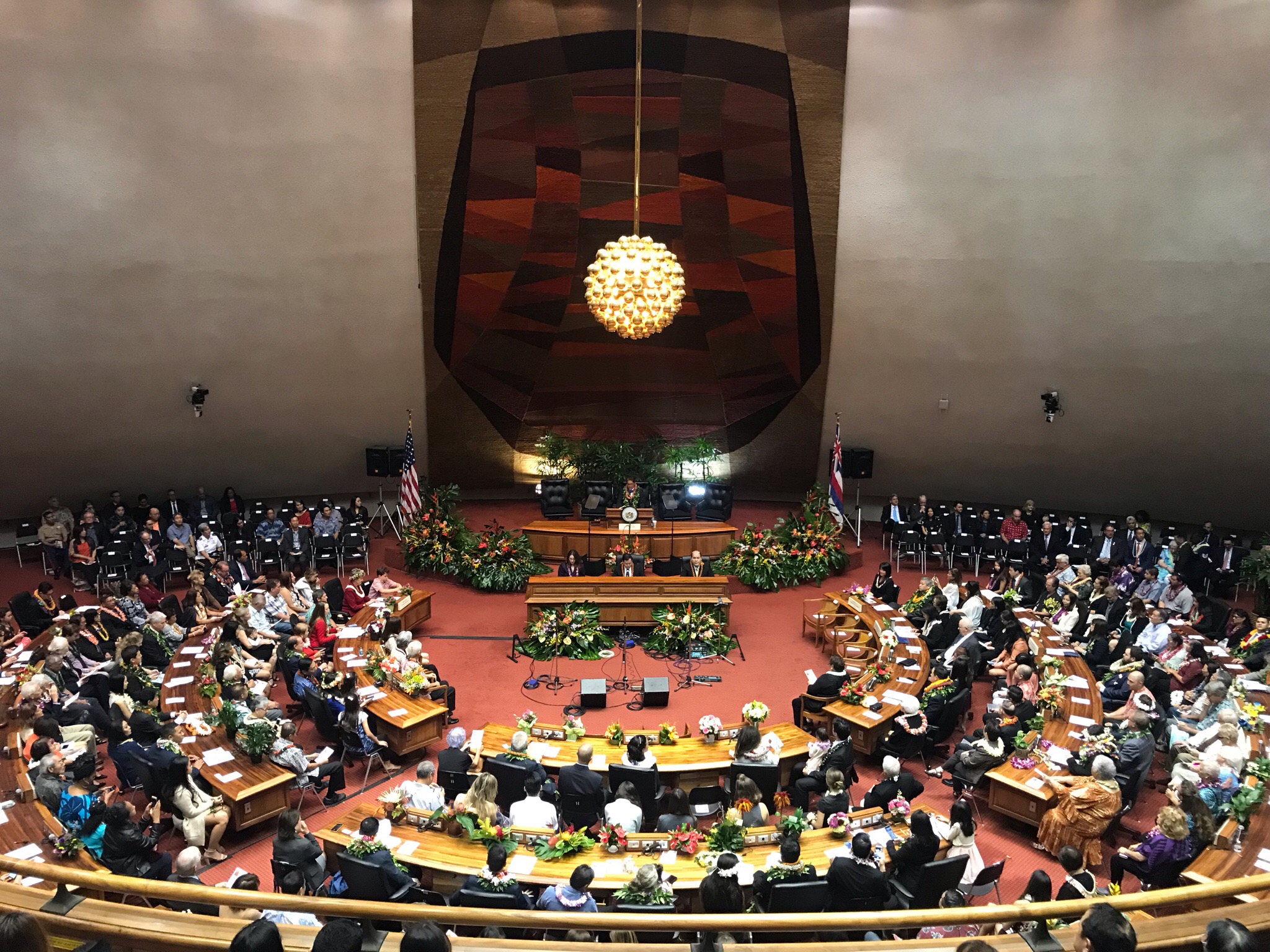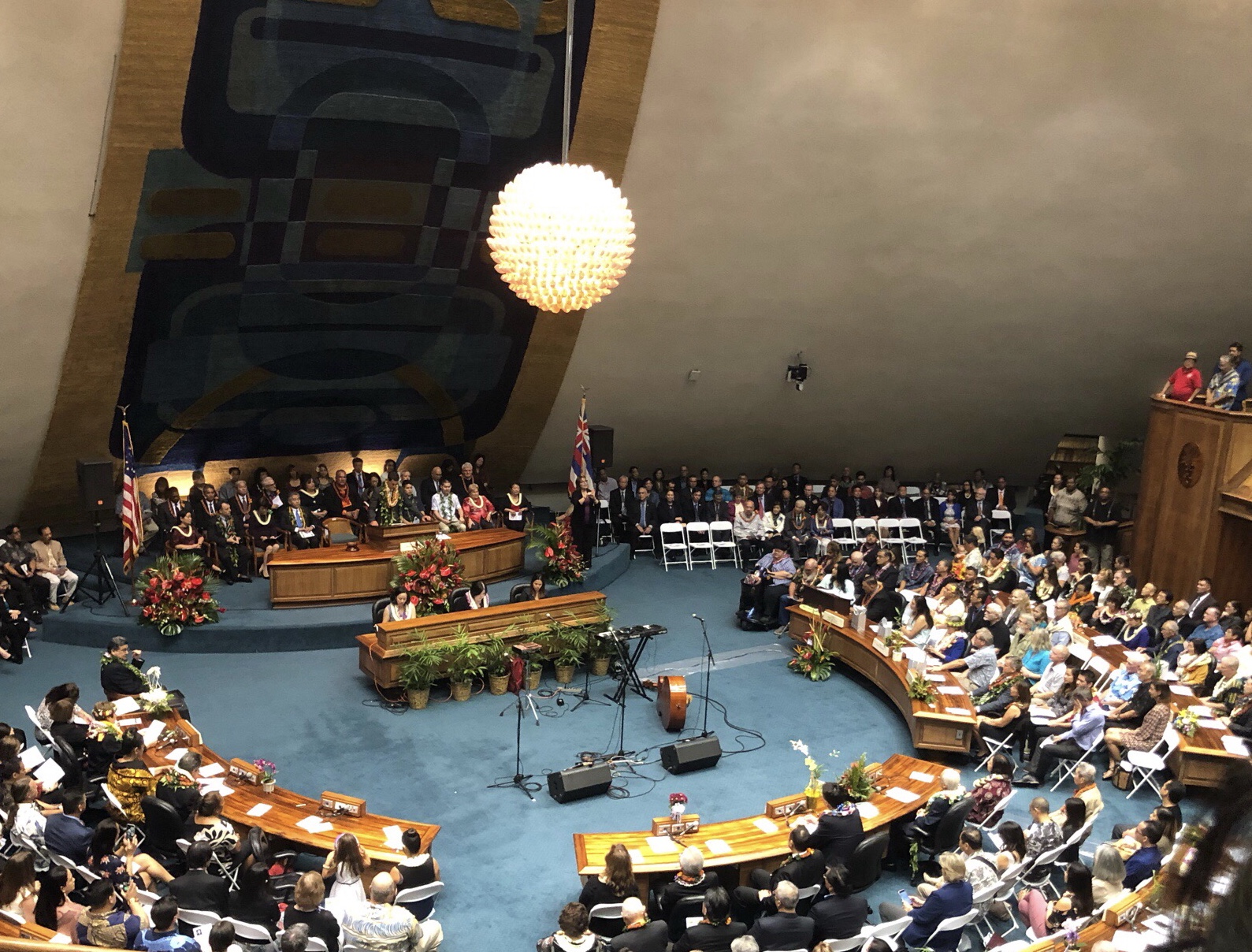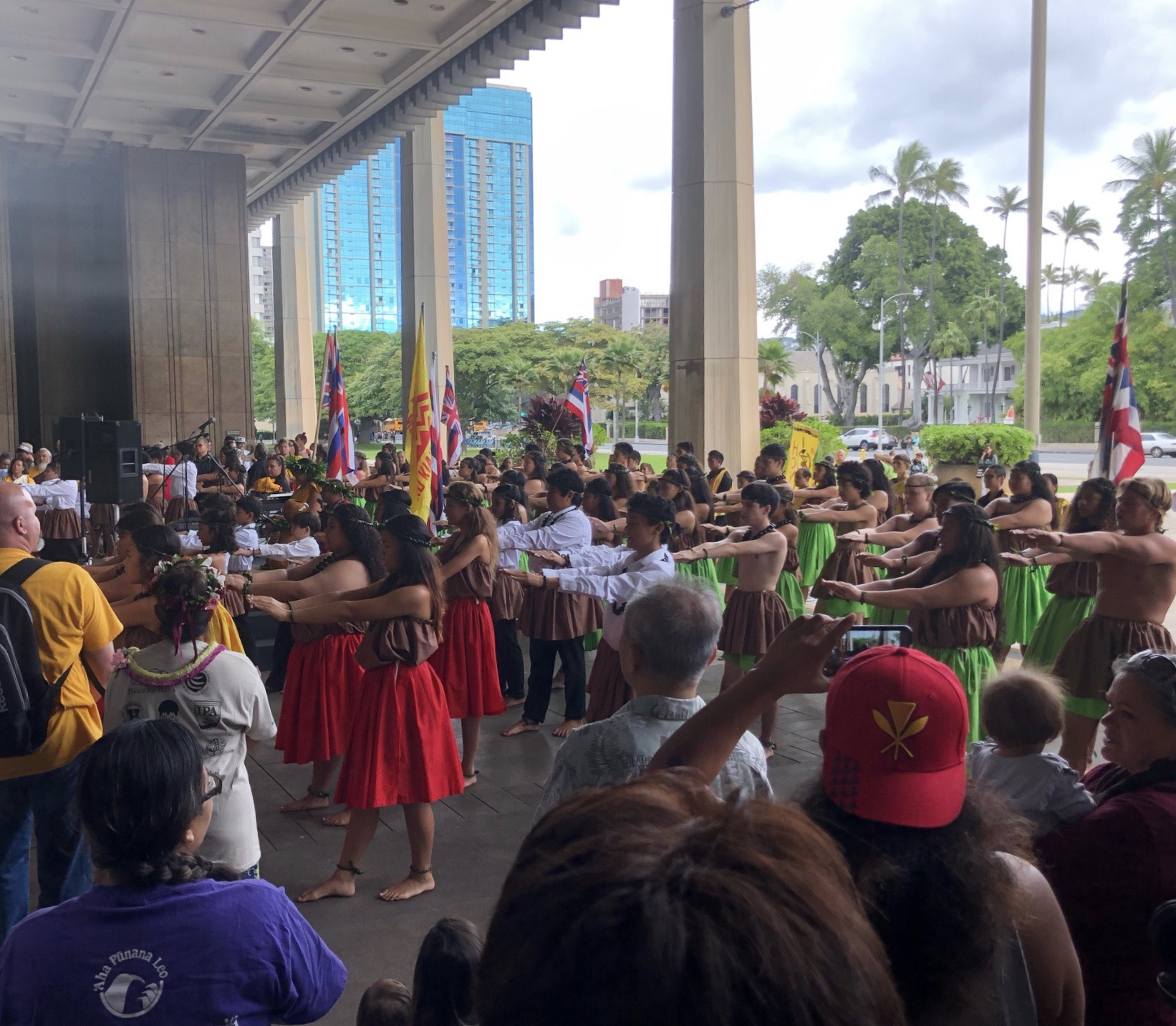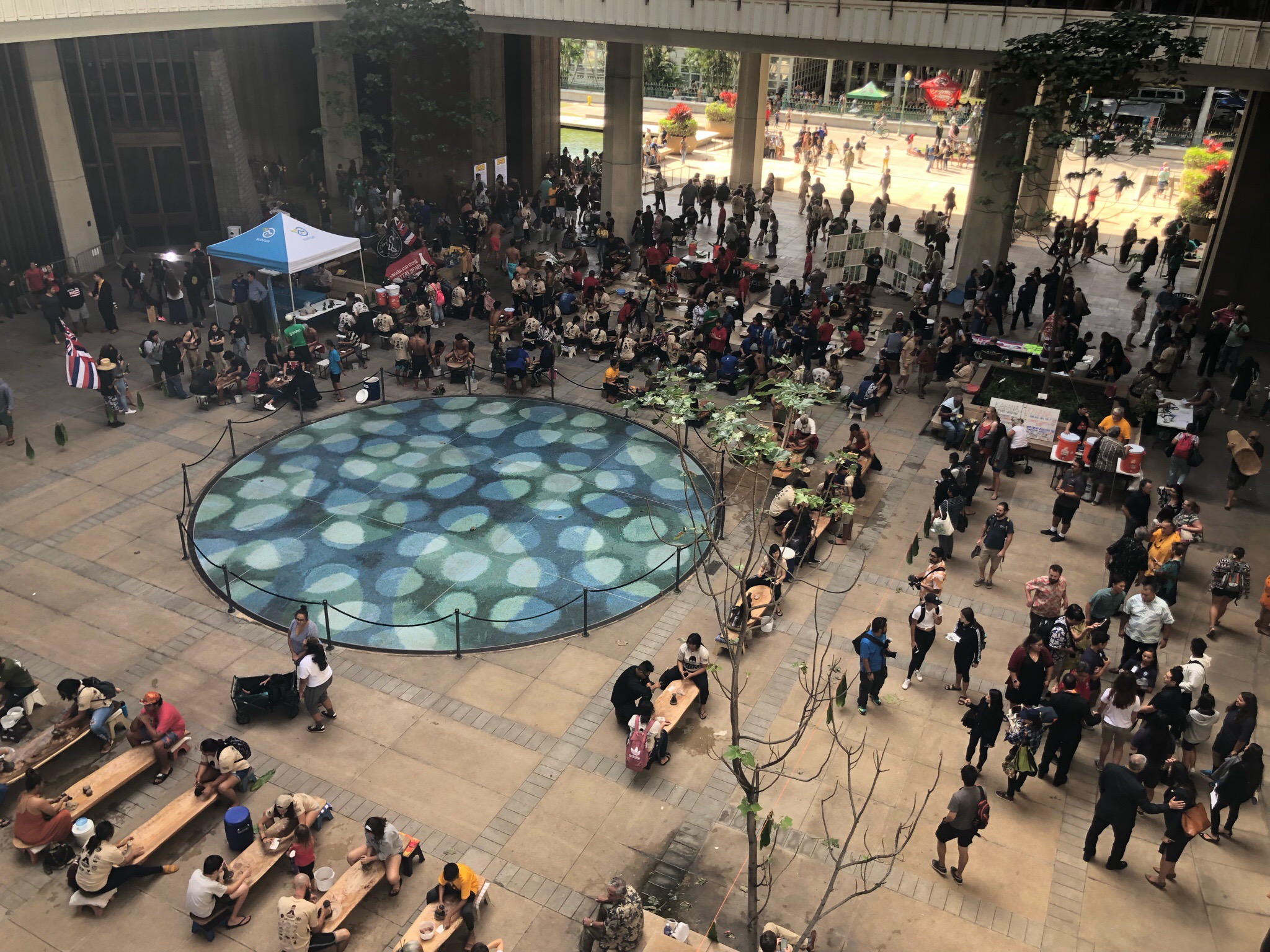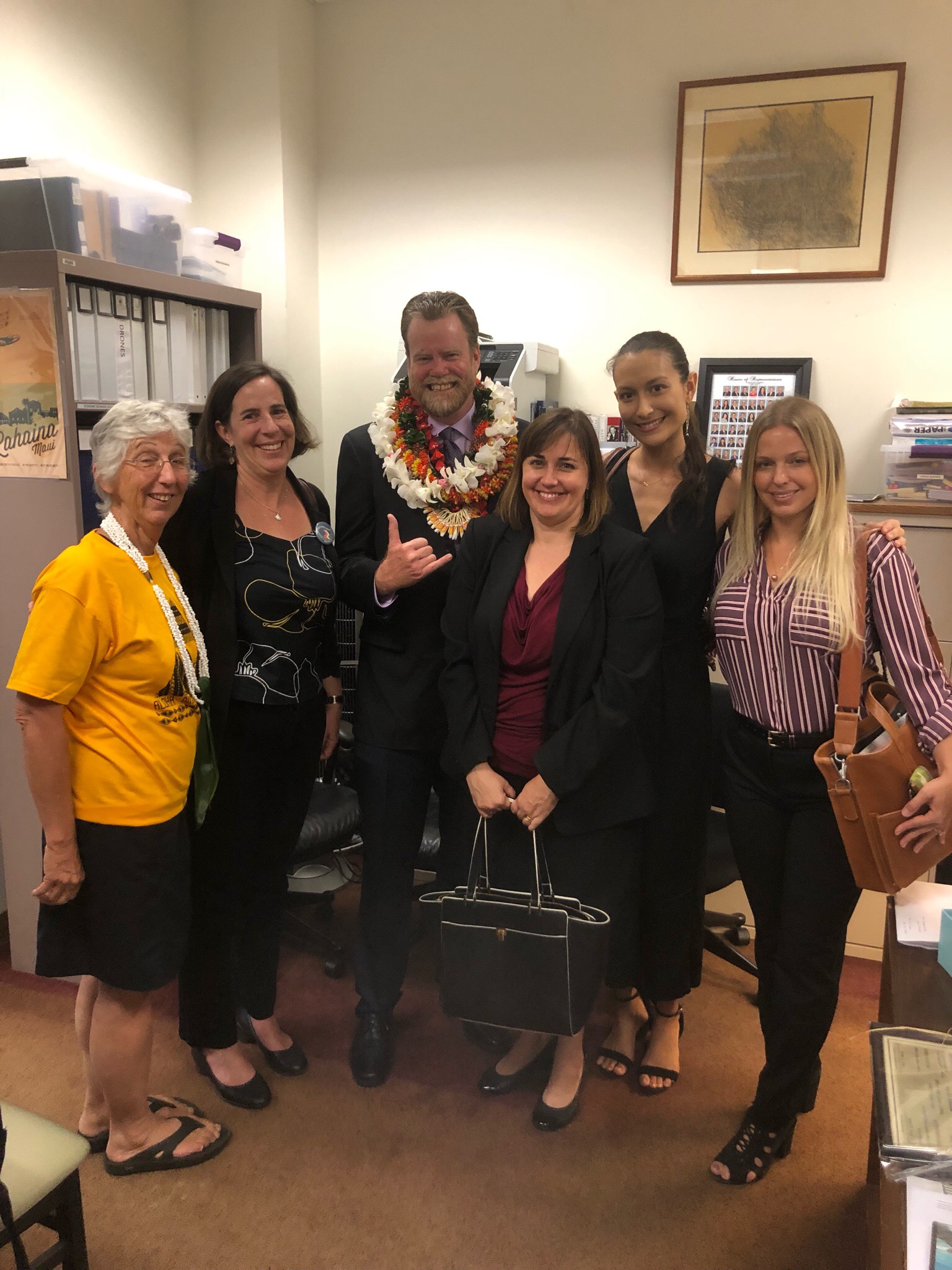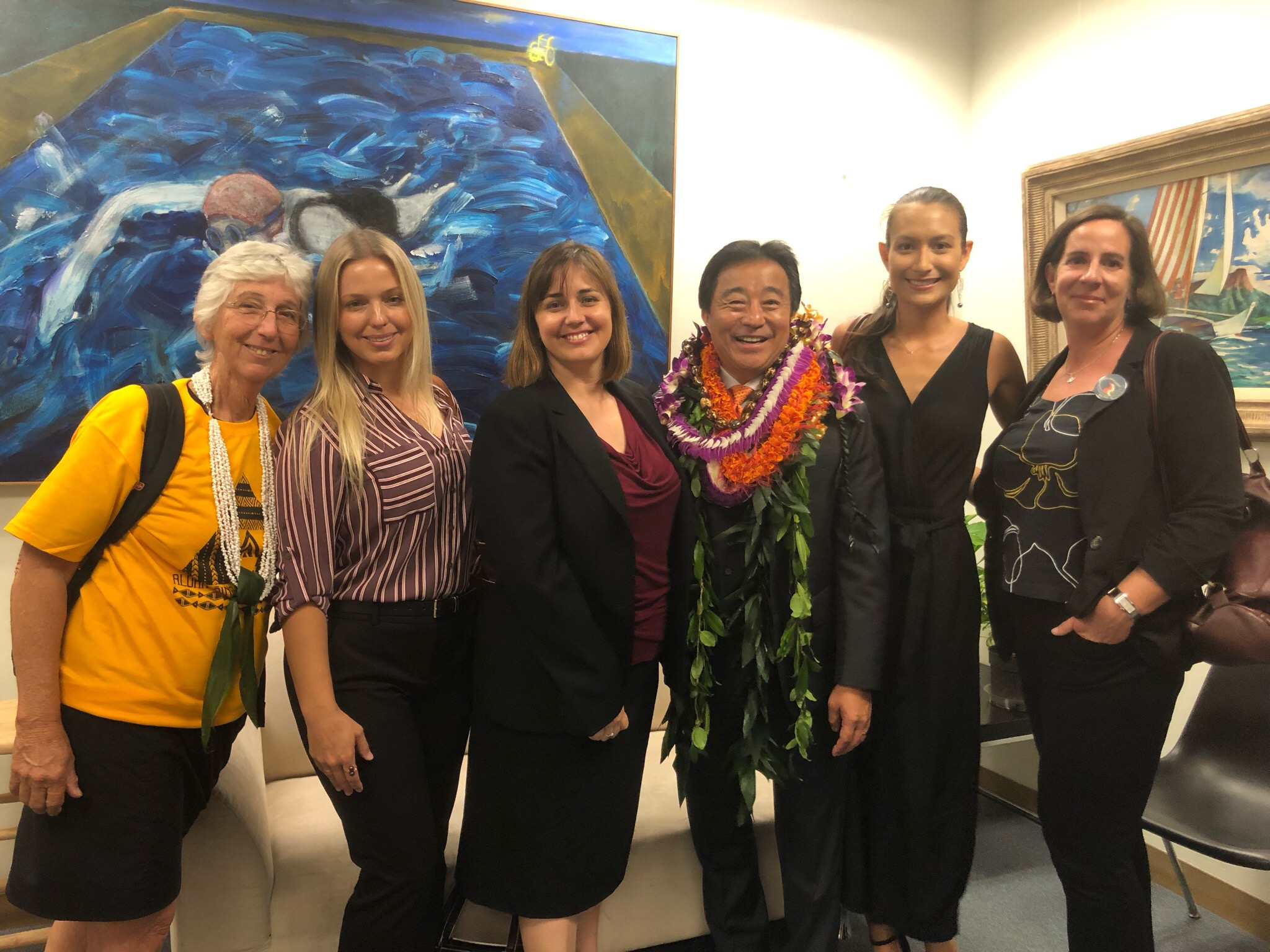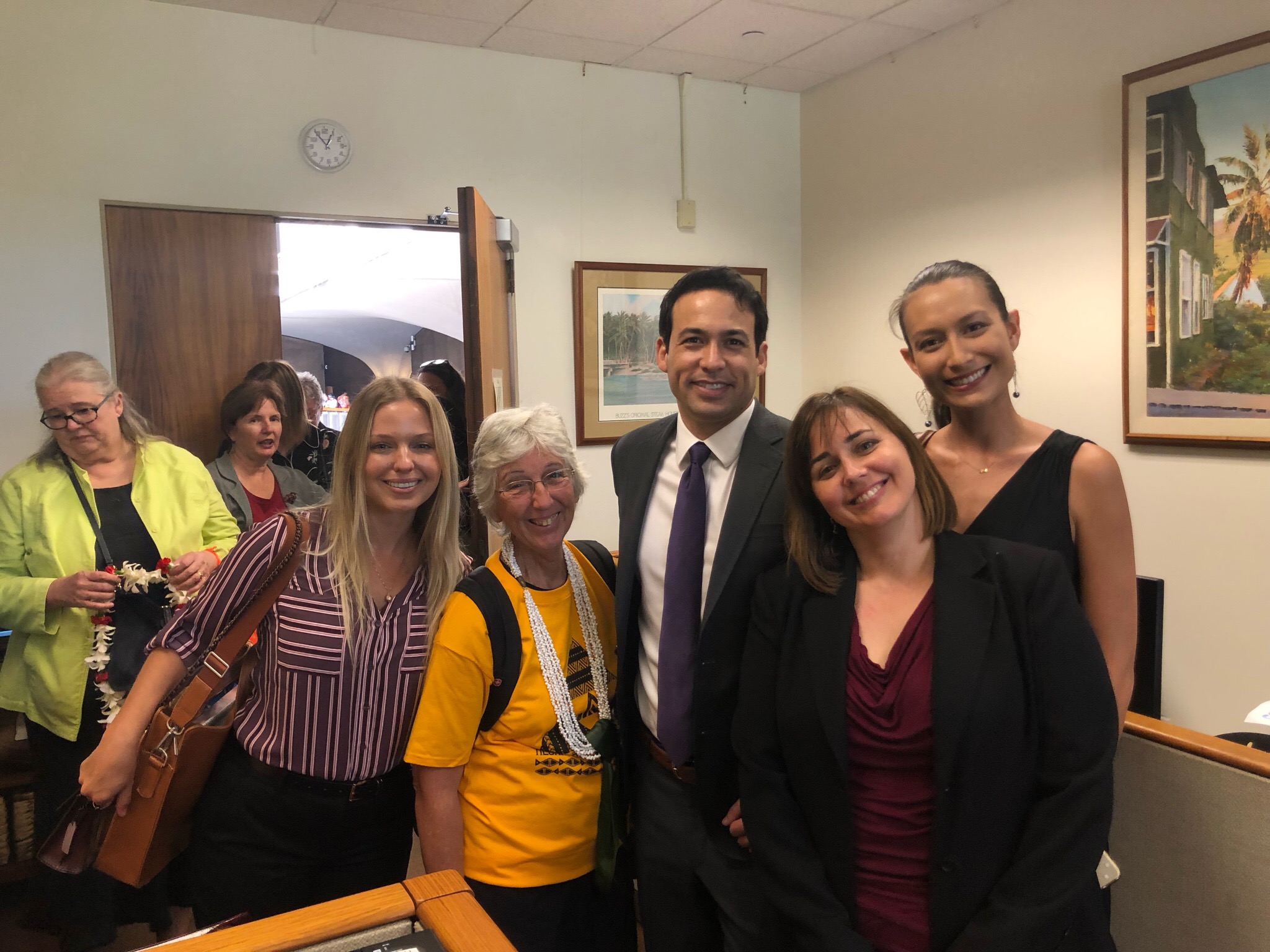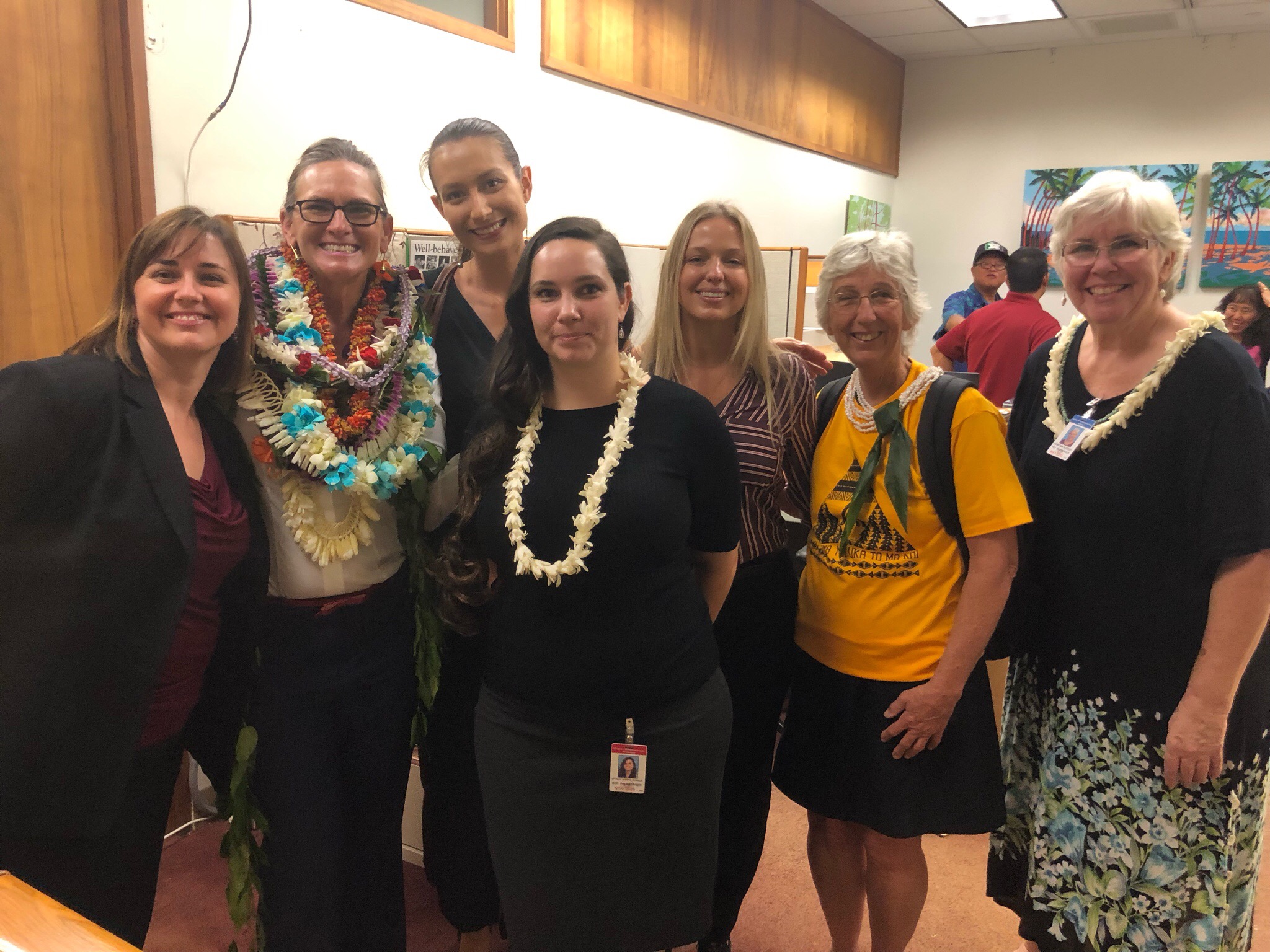Civil Beat: Dozens Of Climate Change Bills Went Down The Political Drain This Session
/There was a lot of talk about the need to address sea level rise and other problems but virtually no action in the Hawaii Legislature.
By Nathan Eagle
The Hawaii Legislature nudged the islands toward an electric ground transportation sector this session and funded future studies on taxing carbon emissions and boosting overall sustainability.
But lawmakers largely avoided taking any bold action to prepare and protect the state from a rapidly changing climate before adjourning last week.
Dozens of bills to more aggressively address rising seas, stronger storms, longer droughts, increased wildfires and other forecasted threats to billions of dollars’ worth of coastal property, valuable reefs and the overall economy failed to pass, often without so much as a single public hearing.
That’s despite the session opening in January on the heels of several seminal state, federal and international scientific reports that underscore the urgency and heightened risk that Hawaii in particular faces as the world struggles to slow down global warming from greenhouse gas emissions.
Gov. David Ige and leaders in the Legislature vowed to step up the state’s efforts to address climate change after President Donald Trump pledged to pull the U.S. out of the Paris accord and started rolling back federal clean energy initiatives.
Although there have been plenty of promises and goals to move Hawaii in that direction, the pace to implement them has been slow.
“I’m not sure why our leaders in the Capitol feel that we can wait before considering the many thorny problems we will encounter as we build a just, equitable, sustainable and resilient community that is fully adapted to the flooding related to sea level rise,” says University of Hawaii professor Chip Fletcher, a leading expert on climate change.
He was disappointed that specific efforts to address sea level rise in the islands failed to gain traction.
Several of those measures would have incorporated sea level rise planning into state laws and included the recommendations of the state’s 300-page report on sea level rise adaptation and mitigation, released in 2017 per a legislative request.
Fletcher was similarly dismayed by the defeat of a bill that would have added the words “sea level rise” and “climate change” to the state’s coastal zone management law.
“Are there climate change deniers in the Hawaii Legislature?” Fletcher said.
Kimiko LaHaela Walter of the Hawaii Democratic Party’s Environmental Caucus said the proposed changes could have helped the state protect its sandy beaches and the properties and infrastructure behind them.
“Sea level rise is a reality, and it is necessary to revise our statutes accordingly,” she said.
More than 13 miles of beach statewide have already been lost to erosion fronting seawalls and revetments, according to a University of Hawaii study. The proposed law would have encouraged developments to move farther from the shoreline instead of armoring properties, according to the Sierra Club.
Versions of the bill in the Senate and House had progressed this session but died when signals got crossed between lawmakers on which measure should ultimately be the vehicle to move forward.
Studies have shown that the value of all structures and land projected to be flooded by a 3.2-foot rise in sea level by the end of this century amounts to more than $20 billion. That doesn’t include the compounding effect on tourism, the state’s economic driver, or other industries.
More than 500 Hawaiian cultural sites are expected to be flooded and 20,000 residents are anticipated to be displaced. But there was no real movement this session on implementing the state’s plans for managed retreat or sea level rise adaptation.
The last National Climate Assessment, released by the Trump administration in November, says that “continued increase in the frequency and extent of high-tide flooding due to sea level rise threatens America’s trillion-dollar coastal property market and public infrastructure, with cascading impacts to the larger economy.”
Sen. Karl Rhoads, who chairs the Judiciary Committee, was disappointed in the session’s outcome on the climate front.
“It just didn’t feel like much urgency,” he said. “And if there’s ever an issue to be panicked about and show some urgency on, this is it. I don’t know what would be worse — you can already see the effects here.”
Rhoads recognized the nation-leading goals that the Legislature has set to eliminate the use of fossil fuels in the electricity sector, for instance. But he said now is the time to safely go from studying to doing.
“All the rest is rearranging deck chairs on the Titanic,” he said.
EV Surcharge And New Energy Czar
The Legislature sent some mixed signals too.
The state has some the nation’s strongest environmental goals, including reaching 100 percent carbon neutrality by 2045 and building an entirely renewable electricity sector by the same time.
But lawmakers passed a bill by a wide margin that will make it more expensive to own an electric vehicle. Senate Bill 409 slaps a $50 annual surcharge on EV registration fees.
The theory behind the measure is that EV owners, who account for about 1% of all registered vehicles, aren’t paying their fair share for state roads because they don’t pay the gasoline tax at the pump.
But as critics pointed out, the bill not only discourages EV adoption — which is contrary to state goals — it also fails to recognize that people driving gas-powered vehicles aren’t paying their share for the destruction those emissions cause.
Only Reps. Nicole Lowen, Calvin Say, Cynthia Thielen, Tina Wildberger and Sens. Les Ihara, Donna Mercado Kim, Russell Ruderman and Laura Thielen voted against it.
Melissa Miyashiro of Blue Planet Foundation said the new $50 registration fee, set to take effect Jan. 1, underscores the need to take a holistic view of the state’s much-needed transition to clean transportation.
“We need to make sure that our transportation policy as a whole is incentivizing — rather than penalizing — moving away from dirty fossil fuels,” she said. “We’re certainly in favor of everyone paying their fair share. That’s why we support establishing a tax on carbon pollution — ensuring that those who pollute pay their fair share for contributing to our climate crisis.”
The state won’t be taxing carbon emissions anytime soon. A proposal from Rhoads cleared the Senate but died in the House. Others died without a hearing.
A carbon pricing study did receive funding though, in the amount of $150,000. That’s expected to be fruitful, but it’s unclear when it will get done or who will do it.
Hawaii would be the first state to implement this type of tax, so there was a reluctance to rush into it.
“This is a complex tool with a number of choices to be made in how it is configured,” Fletcher said. “Legislators will need information that can come from this study when they consider how to price carbon-based activities in developing future policies. Let’s hope there are committed leaders in the Legislature who will push to implement the study findings and not let it sit on a shelf and collect dust.”
Lowen helped secure the funding for the study, which got tacked on at the end of session to a House Bill 852, which emboldens the state energy office.
That measure underscores how energy comprises one-eighth of the state’s overall economy, with electric bills for public facilities and public transportation services eclipsing $400 million annually.
Miyashiro said the bill has the potential to prevent over half a billion dollars of energy waste over the next 15 years.
Aside from establishing the Hawaii state energy office as an attached agency to the Department of Business, Economic Development, and Tourism, the bill creates a chief energy officer position who will be subject to Senate confirmation.
So it’s also a power play by the Legislature, which ribbed Ige’s administration this session over various appointees and policies. Senate and House leaders endorsed his opponent before he won re-election last year, and while they say they’ve put the election-year politics behind them, this session marked a notable reassertion of their authority as the lawmaking branch.
Lowen, who chairs the House Energy and Environmental Protection Committee, said that lawmakers delivered more on the climate front than the media has portrayed. News outlets last month aired the frustrations of environmental groups who held a mock funeral over the death of several dozen climate-related bills.
“We passed some important steps forward that are maybe more practical than flashy but important nonetheless,” she said.
EV Charging Station Rebates
While acknowledging the lack of anything notable on sea level rise, Lowen said key energy bills did pass.
Hawaii will be the first state to codify appliance efficiency standards thanks to House Bill 556, a top priority for groups like Blue Planet, Ulupono Initiative and Sierra Club. Starting Jan. 1, 2021, the law applies to certain products, such as computers and monitors, shower heads and faucets, fluorescent lamps and sprinklers.
“Energy efficiency is the most important but most under-appreciated emissions reduction tool there is, and it lowers utility bills at the same time,” Lowen said.
Under House Bill 1585, the state will create a rebate program for the installation or upgrade of EV charging stations in publicly accessible commercial areas, workplaces and multi-unit dwellings, according to a House release. But the rebate won’t apply to single-family residences or parking stalls reserved for individual use.
“We want everyone to have the choice to use a low-cost electric vehicle, not just those that live in single-family homes or can easily charge at home,” Miyashiro said, noting pent-up demand.
Supporters said this helps lay the groundwork for an EV future in Hawaii, but others lamented the Legislature’s decision to not require new construction of multi-family and commercial buildings to make a certain percent of parking stalls ready for EV chargers. That measure, Senate Bill 1000, died in the final days of the session.
“We have a lot of work to do next session to advance meaningful policies that make clean transportation options more affordable for everyone and don’t reward choosing climate-changing gasoline vehicles over clean, cost-saving electric vehicles,” Miyashiro said.
$150K For Sustainability Plan
The Legislature also passed House Bill 1558, which requires the Office of Planning to update the Hawaii 2050 Sustainability Plan before the start of the 2021 legislative session. It says the plan “shall serve as the state’s climate and sustainability action plan to determine future actions guiding the coordination and implementation of Hawaii’s sustainability and climate adaptation goals, principles and policies.”
Lawmakers in 2005 had required 10-year updates of the plan but did not give any funding beyond fiscal year 2007 for state agencies to do the work. This bill provides $150,000 for the next update.
Next year, Lowen said a top priority for her will be sea level rise, building resilience and microgrids.
“Time is of the essence,” she said, “but it’s normal that some of these bigger bills take a couple years.”
Meanwhile, the forecast remains dire and reports show the need to act faster. The National Climate Assessment, for instance, says there is a need for “more immediate and substantial global greenhouse gas emissions reductions, as well as regional adaptation efforts” to avoid the most severe long-term consequences.
The report adds that mitigation and adaptation actions also present opportunities for benefits that are often more immediate and localized, such as improving local air quality and economies through investments in infrastructure.
It’s as much about money as the environment. The report underscores that “with continued growth in emissions at historic rates, annual losses in some economic sectors are projected to reach hundreds of billions of dollars by the end of the century — more than the current gross domestic product of many U.S. states.”
Hawaii Board of Land and Natural Resources Chair Suzanne Case said in a statement Friday that she appreciates the Legislature’s consideration of a wide array of proposed measures to curb Hawaii’s reliance on fossil fuels and to reduce carbon emissions, the leading cause of global climate change.
“Since this was the first legislative session in a two-year cycle, climate change and carbon reduction bills are still pending,” she said. “We and all the numerous organizations and people engaged in climate change solutions will continue working with legislators to work out urgently needed legislation.”
Case noted that the state is nonetheless moving forward, thanks to the Legislature passing measures for clean transportation infrastructure and vehicles such as EVs.
“These strategic changes help Hawaii meet its goals in very real ways,” she said.
Case also noted that the Legislature passed significant funding to protect critical watersheds across the state, one of Hawaii’s most critical climate change vulnerabilities and adaptation challenges.
Ige has until June 24 to submit a list of any bills he intends to veto to the Legislature. He then has until July 9 to actually veto any of those measures, sign them or let them become law without his signature.
Link to original article: https://www.civilbeat.org/2019/05/dozens-of-climate-change-bills-went-down-the-political-drain-this-session/















